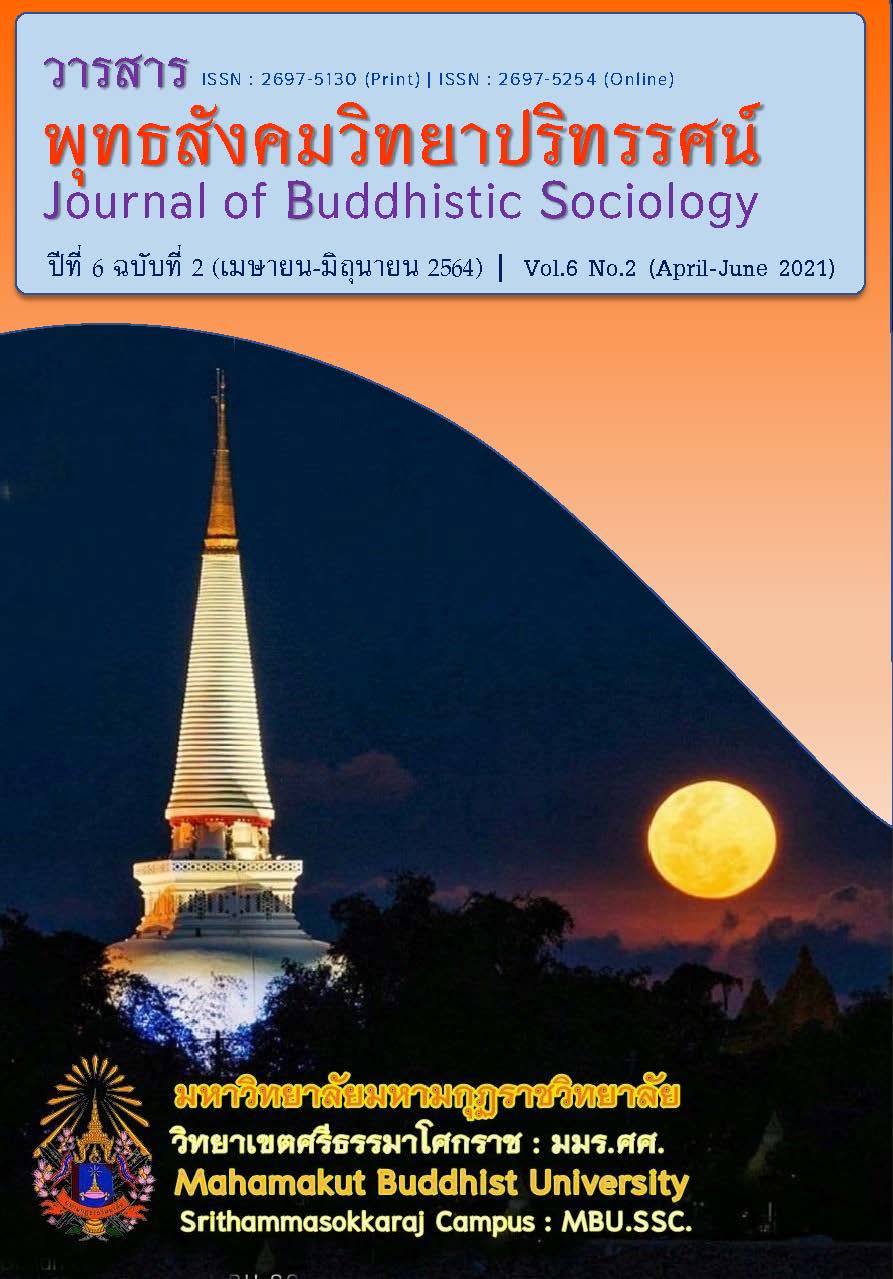ACADEMIC LEADERSHIP OF ADMINISTRATORS AFFECTING STUDENTS’ QUALITY IN SCHOOLS UNDER NAKHON SI THAMMARAT PRIMARY EDUCATIONAL SERVICE AREA OFFICE 4
Main Article Content
Abstract
The objectives of this research were as follows: 1. to study the academic leadership of school administrators 2. to study the students’ quality in their schools and 3. to study the factors on the academic leadership of administrators affecting students’ quality in schools under Nakhon Si Thammarat Primary Educational Service Area Office 4. This was quantitative research. The sample was composed of 103 school administrators. There were 5 school administrators as the key informants. The instruments for this research consisted of the questionnaire and semi-structured interview. The statistics used for data analysis were frequency, percentage, mean, standard deviation and multiple regression analysis.
The research found that:
1. The average academic leadership of school administrators by overview were at the highest level. Considering each aspect, it found that the average of the good personality and ability aspects were at the highest level, followed by the virtue and ethics aspects. The average of background and good experience aspects was at the lowest level.
2. The average of the student’s quality by overview was at the highest level. Considering each aspect, it found that the average of goodness and happiness aspects was at the highest level, followed by the aspect of excellence.
3. For the factors on academic leadership of administrators, the aspects of background and good experience, knowledge and ability affected students’ quality. The suggestions are as follows; the school administrators should apply the experience for making a learning plan by focusing on students first. The school administrators who have good personalities can bring out the success in work cooperation. Moreover, they should apply Dhamma principles to work performance and be a good model. Also, they should have 3 skills-management, human relations and techniques and should be able to create innovation for helping personnel and students develop their own competencies.
Article Details
References
กระทรวงศึกษาธิการ. (2562). พระราชบัญญัติการศึกษาแห่งชาติ (ฉบับที่ 4) พ.ศ. 2562. กรุงเทพมหานคร: โรงพิมพ์กรมศาสนา.
เกตุอัมพร มียิ่ง. (2560). ปัจจัยภาวะผู้นำทางวิชาการของผู้บริหารสถานศึกษาที่ส่งผลต่อคุณภาพการจัดการเรียนรู้ของครูโรงเรียนเอกชน สังกัดมูลนิธิแห่งสภาคริสตจักรในประเทศไทย. ใน วิทยานิพนธ์มหาบัณฑิต สาขาการจัดการการศึกษา. มหาวิทยาลัยธุรกิจบัณฑิตย์.
จุฑามาศ อินนามเพ็ง. (2552). ภาวะผู้นำทางวิชาการของผู้บริหารและครูผู้สอนที่ส่งผลต่อการเป็นองค์กรแห่งการเรียนรู้ของโรงเรียนสังกัดสำนักงานเขตพื้นที่การศึกษาในจังหวัดนครพนม เขต 2. ใน วิทยานิพนธ์ครุศาสตร มหาบัณฑิต สาขาบริหารการศึกษา. มหาวิทยาลัยราชภัฏสกลนคร.
ธีระ รุญเจริญ. (2551). การบริหารเพื่อความเป็นเลิศ. กรุงเทพมหานคร: บรรณกิจเทรดดิ้ง.
บุญพา พรหมณะ. (2559). ภาวะผู้นำทางวิชาการของผู้บริหารสถานศึกษาสังกัดสำนักงานเขตพื้นที่การศึกษา ประถมศึกษาสุราษฎร์ธานีเขต 1. ใน วิทยานิพนธ์ครุศาสตรมหาบัณฑิต สาขาบริหารการศึกษา. มหาวิทยาลัยราชภัฏนครศรีธรรมราช.
ประเสริฐ เนียมแก้ว และคณะ. (2555). ภาวะผู้นำทางวิชาการของผู้บริหารสถานศึกษาสังกัดสำนักงานเขตพื้นที่การศึกษาประถมศึกษานครศรีธรรมราช. วารสารนาคบุตรปริทรรศน์, 4(2), 175-177.
ปิยพร บุญใบ. (2563). ภาวะผู้นำทางวิชาการของผู้บริหารที่ส่งผลต่อประสิทธิผลการประกันคุณภาพภายในของสถานศึกษา สังกัดสำนักงานเขตพื้นที่การศึกษาประถมศึกษาสกลนคร เขต 1. ใน ปริญญาครุศาสตรมหาบัณฑิต สาขาวิชาการบริหารการศึกษา. มหาวิทยาลัยราชภัฏสกลนคร.
พรทิพย์ เบาสูงเนิน และคณะ. (2561). ตัวแปรที่ส่งผลต่อคุณภาพผู้เรียนของโรงเรียนศูนย์การเรียนรู้ตามหลักปรัชญาเศรษฐกิจพอเพียง ด้านการศึกษาสังกัดคณะกรรมการการศึกษาขั้นพื้นฐาน. ใน ดุษฎีมหาบัณฑิต สาขาบริหารการศึกษา. คณะศึกษาศาสตร์ มหาวิทยาลัยวงษ์ชวลิตกุล.
สำนักงานคณะกรรมการการศึกษาแห่งชาติ. (2560). แผนการศึกษาแห่งชาติ พ.ศ. 2560-2579. กรุงเทพมหานคร: พริกหวานกราฟฟิค .
สุรพล พิมพ์สอน และคณะ. (2557). กลยุทธ์การพัฒนาคุณภาพผู้เรียนของสถานศึกษาสังกัดสำนักงานเขตพื้นที่การศึกษามัธยมศึกษา เขต 41. วารสารครุศาสตร์, 42(3), 63-65.


